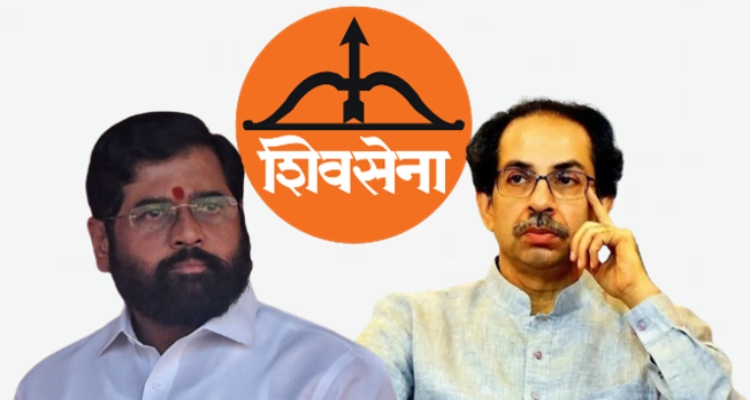
The Supreme Court on Tuesday said it will hear on August 7 the plea from the Uddhav Thackeray faction challenging Maharashtra Assembly Speaker Rahul Narwekar’s order.
The order declared the Shiv Sena bloc led by Chief Minister Eknath Shinde as the “real political party” following their split in June 2022.
The Speaker had also dismissed the disqualification petitions filed by the Thackeray faction against Shinde and his supporting MLAs.
During the proceedings, Chief Justice D Y Chandrachud, heading the Bench, responded to Senior Advocate Kapil Sibal, who raised concerns about the tagging of the Thackeray faction’s plea with another case involving the NCP. Sibal argued that the Shiv Sena matter, scheduled for August 6, should not be associated with the NCP case.
The Bench, which also includes Justices JB Pardiwala and Manoj Misra, clarified that the matters were scheduled to be heard consecutively rather than being formally tagged together.
“We will hear it on August 7,” CJI Chandrachud assured Sibal.
On 29th July, the same Bench had sought responses from Ajit Pawar and his 40 MLAs regarding a plea from the Sharad Pawar faction of the NCP, challenging Narwekar’s decision declaring the group led by the Deputy Chief Minister as the real NCP. The Bench took note of Senior Advocate Abhishek Singhvi’s request for urgent hearing due to the impending expiration of the Maharashtra Assembly term in November.
The bench had decided to hear the plea filed by Jayant Patil and Jitendra Awhad from the Sharad Pawar faction immediately after addressing the Shiv Sena petition from the Uddhav Balasaheb Thackeray camp.
The Thackeray faction has similarly contested the Speaker’s decision favoring Shinde and his MLAs as representing the real Shiv Sena. Sibal objected to the alleged tagging of the pleas, emphasizing their separate nature.
On January 22, the Supreme Court had issued notices to Chief Minister Shinde and other lawmakers of his faction in response to a plea from Prabhu, a leader of the Thackeray faction. The Thackeray faction accuses Shinde of “unconstitutionally usurping power” and leading an “unconstitutional government.”
In an order dated January 10, Speaker Narwekar had rejected the Thackeray faction’s plea to disqualify 16 MLAs of the ruling camp, including Shinde. The Thackeray faction argues that these orders are “patently unlawful and perverse,” contending that rather than penalizing defections, they reward the defectors by recognizing them as the legitimate party.
The plea asserts that the Speaker’s decisions are based on the premise that the majority of legislators represent the political party’s will, thus exempting them from disqualification. The Speaker’s ruling, which did not disqualify any rival MLAs, bolstered Shinde’s position as Chief Minister and strengthened his political standing within the ruling coalition, which includes the BJP and the NCP (Ajit Pawar group).
Narwekar emphasized that party leadership cannot use the provisions of the 10th Schedule of the Constitution (anti-defection law) to suppress dissent or indiscipline. He noted that the Shinde group had the support of 37 out of 54 Sena MLAs when the party split in June 2022. The Election Commission had granted the ‘Shiv Sena’ name and ‘bow and arrow’ symbol to the Shinde-led faction in early 2023.
In his ruling on the disqualification petitions, Narwekar stated that Sunil Prabhu of the Sena (UBT) ceased to be the whip from June 21, 2022, when the party split, and Bharat Gogawale of the Shinde group became the authorized whip. The Speaker also ruled that the Shiv Sena ‘pramukh’ (chief) did not have the authority to remove any leader from the party, rejecting the argument that the party chief’s will equates to the will of the party.




